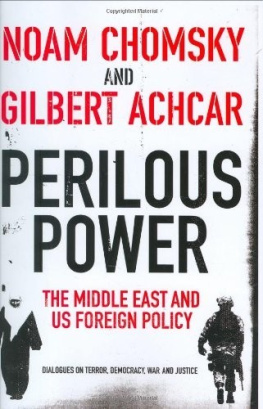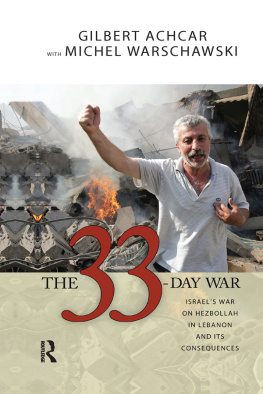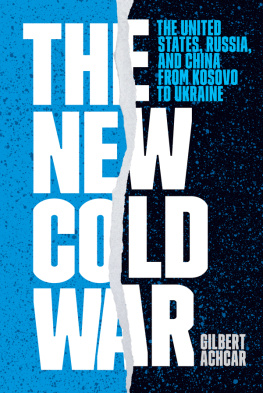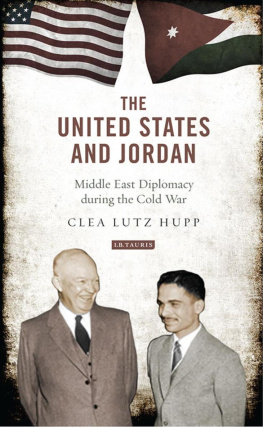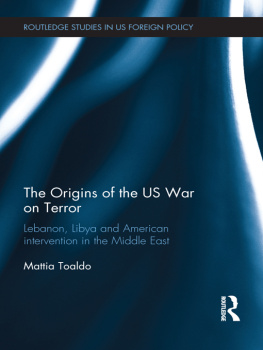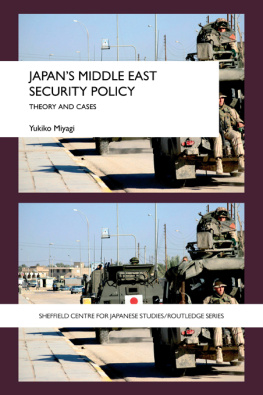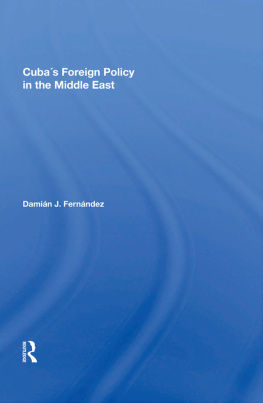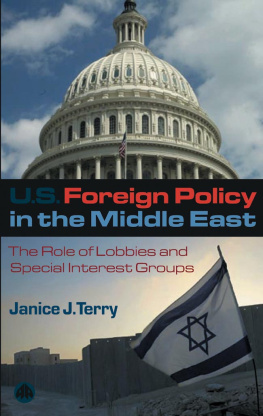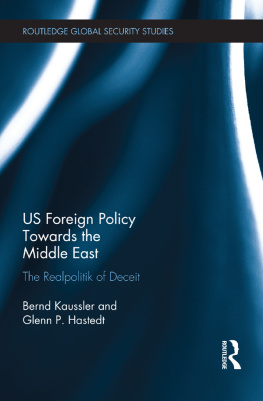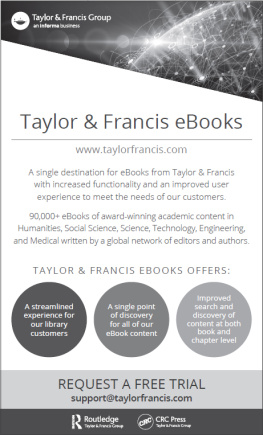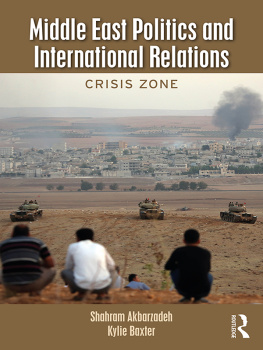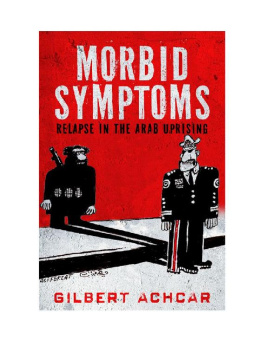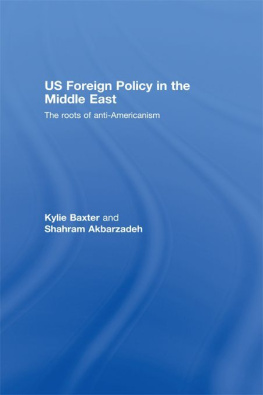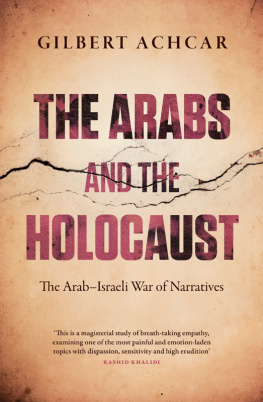THE MIDDLE EAST & U.S. FOREIGN POLICY
NOAM CHOMSKY & GILBERT ACHCAR
Edited with a preface by Stephen R. Shalom

HAMISH HAMILTON
an imprint of
PENGUIN BOOKS
HAMISH HAMILTON
Published by the Penguin Group
Penguin Books Ltd, 80 Strand, London WC2R 0RL , England
Penguin Group (USA) Inc., 375 Hudson Street, New York, New York 10014, USA
Penguin Group (Canada), 90 Eglinton Avenue East, Suite 700, Toronto, Ontario, Canada M4P 2Y3
(a division of Pearson Penguin Canada Inc.)
Penguin Ireland, 25 St Stephens Green, Dublin 2, Ireland (a division of Penguin Books Ltd)
Penguin Group (Australia), 250 Camberwell Road,
Camberwell, Victoria 3124, Australia (a division of Pearson Australia Group Pty Ltd)
Penguin Books India Pvt Ltd, 11 Community Centre,
Panchsheel Park, New Delhi 110 017, India
Penguin Group (NZ), 67 Apollo Drive, Mairangi Bay, Auckland 1310, New Zealand
(a division of Pearson New Zealand Ltd)
Penguin Books (South Africa) (Pty) Ltd, 24 Sturdee Avenue,
Rosebank, Johannesburg 2196, South Africa
Penguin Books Ltd, Registered Offices: 80 Strand, London WC2R 0RL , England
www.penguin.com
First published in the United States of America by Paradigm Publishers 2007
First published in Great Britain by Hamish Hamilton 2007
1
Copyright by Noam Chomsky and Gilbert Achcar, 2007
Preface copyright Stephen R. Shalom, 2007
The moral right of the author has been asserted
All rights reserved
Without limiting the rights under copyright
reserved above, no part of this publication may be
reproduced, stored in or introduced into a retrieval system,
or transmitted, in any form or by any means (electronic, mechanical,
photocopying, recording or otherwise), without the prior
written permission of both the copyright owner and
the above publisher of this book
Printed and bound in the United States of America
978-0-14-192469-4
Contents
PREFACE
Stephen R. Shalom
Theres a well-known college admissions interview question that asks, If you could have dinner with any two people in history, whom would you choose? Opinions will no doubt vary when considering the range of historical figures over all the domains of human knowledge, but if one were interested in learning about the modern-day Middle East from contemporary analysts, I cant imagine more engaging and informative dinner companions than Noam Chomsky and Gilbert Achcar.
I first met Noam Chomsky in 1966, when I was a student at MIT. He was at this time already renowned for revolutionizing the field of linguistics and had recently become an outspoken critic of the U.S. war in Vietnam. For four decades since, I have read and learned immensely from his analysis of foreign policy, the media, and the role of intellectuals in society. But even more impressive than his prodigious intelligence has been his extraordinary commitment to social change. As an undergraduate, I was struck that such a distinguished scholar would join with students at sit-ins and demonstrations. In the early 1970s when I was working on a small newsletter challenging martial law in the Philippines, the first subscription renewal wed receive in the mail each year would be from Noam Chomsky. This has been a consistent pattern as long as Ive known him. He has helped innumerable political organizations and publications, answered countless letters from around the globe, and taken the time to talk to, advise, and inspire all those struggling for a better world.
In the early 1970s Chomsky began writing about the Middle East, returning to a topic that had concerned him since his involvement as a youth Many of Chomskys other books include sections or essays on the Middle Eastas any consideration of U.S. foreign policy must, given the importance and volatility of the regionbut this current volume is his first entirely new book since The Fateful Triangle to focus exclusively on that part of the world.
Gilbert Achcar has shared Chomskys strong commitment to international peace and justice and his keen interest in understanding U.S. foreign policy. In addition, Achcar has a deep firsthand as well as scholarly knowledge of the Middle East. Having grown up and lived in Lebanon for many years, Achcar was intimately involved in the politics of the region and well acquainted with left circles in the Arab world. After moving to France, he continued to carefully follow Middle East events, both as an academic and as an antiwar activist.
I first met Gilbert in February 2003, shortly before the U.S.-led invasion of Iraq, when he spoke as part of a book tour at William Paterson University in New Jersey, where I teach. Over the next few years, I found his analyses of Iraq and of the wider Middle East extremely valuable, based on his expertise and his close reading of the Arabic-language press. I frequently posted his articles and translations on ZNet, a progressive website on which I work, hoping to bring his insights to a wider English-speaking audience.
Achcars writings are informed by an appreciation of the broader considerations of international relations, especially the strategic triad among the United States, China, and Russia, elaborated in his La Nouvelle Guerre Froide (The New Cold War).
This current book is not two writers separate essays strung together. It is based on a dialogue between themsometimes agreeing, sometimes complementing one anothers analysis based on their own perspectives and information, and sometimes disagreeingand as such it represents more than the sum of its parts. Through their conversation, a richer understanding emerges from their shared commitments and their varied expertise and experiences.
Chomsky and Achcar decided from the outset that it would be useful to have a third person present to moderate their face-to-face conversation. This project was to be a two-way conversation, but a third party would pose the questions, keep the discussion on track, and take care of the technical process of recording, enabling the two discussants to concentrate on their analyses and arguments. I was invited to serve in this role. As much as possible, I tried to keep out of the conversation, just moving it along as necessary.
The procedure we followed involved several steps. We began by developing a list of questions to be addressed. The aim here was to generate questions that could not be answered by resorting to an encyclopedia, but that sought to reveal the underlying factors and dynamics at work. Events in the Middle East are so fast moving that any attempt to provide a factual description would soon be outdated, but an analysis of the major forces at play and of the way to approach the critical issues would enable readers to make sense of the past and understand current and future developments. Though this was to be a book about the Middle East, the region cannot be understood apart from the interests and interventions of outside powers, especially in recent years the United States. So we tried to include broad themes relating to the Middle East and U.S. foreign policy as well as to particular areas of conflict. The themes included terrorism (what it is, the extent of the threat, and how it should be dealt with), conspiracies (to what extent do they help us understand political developments), fundamentalism (what drives it, where it is strongest), democracy (its state in the Middle East, how it has been affected by the Iraq war), and the roots of U.S. foreign policy in the region (especially the role of oil and the significance of the Israel lobby). The specific conflicts we focused on were Afghanistan following September 11, Iraq in all its dimensionsthe U.S. role, political developments, the situation of the Kurdish people (in Iraq and also in Turkey)as well as potential conflicts in Iran and Syria. And, of course, we wanted to devote considerable attention to the Palestinian-Israeli conflict: its historical roots, current dynamics, and potential solutions, taking up as well the nature of Israeli society, the various Palestinian political forces, and the issues of anti-Semitism, Islamophobia, and anti-Arab racism.

